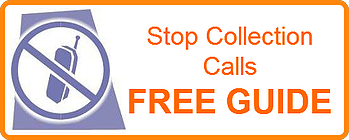 At some point in our lives, most of us have borrowed too much. If you're in over your head, don't despair. But make no mistake: You must learn to live on what you earn.
At some point in our lives, most of us have borrowed too much. If you're in over your head, don't despair. But make no mistake: You must learn to live on what you earn.
First, stop making excuses about why you're in debt. Don't blame the credit card companies or your parents. Put that energy into reducing your debt.
Debt can be extremely stressful, so tell someone you're in financial trouble. If you can't talk to a family member or friend, contact an organization that deals with debt reduction.
Then get a handle on how big your problem is. You can start with a free debt analysis, or you can sit down with pen and paper. When you have no idea how much you owe, simply establishing a number is a critical first step.
Don't avoid the B-word
The best way to start reducing debt is to set up a budget. It's not a punishment; it's a way of knowing exactly where your money goes. You'll need to add up your income and subtract your expenses, then set up a plan.Don't lie to yourself. Be honest about your spending habits and you'll end up with a more realistic budget.
- Budget more than the minimum on credit card payments. Paying the minimum is better than nothing, but you wind up paying a lot more in interest as you chip away at the balances.
- Start an emergency fund -- a savings account that should grow to at least three months of expenses. Even $10 a week can help if it means you don't have to visit a payday lender two months from now. Without an emergency fund, unexpected costs or loss of income can drive you deeper into debt.
What's your plan?
Use your budget to help you plan your debt-reduction strategy. List all of your debts, from the highest interest rate to the lowest. Aggressively pay down the highest-rate balances while making on-time minimum payments on the others. Your budget will dictate how much you can devote to paying down your balances each month.In addition, consider these tips:
- If you have the money in savings, pay off what you can. The amount of savings income you get is usually dwarfed by interest rates you pay on your debts.
- Use any extra cash -- bonuses, extra paychecks, lottery winnings -- to pay down debts.
- Volunteer to work overtime, or get a second job.
If you can't earn more money, you'll need to spend less. Try these tips:
- Eat at home when possible. Avoid buying lattes and fast food.
- Go cash-only. After the bills are paid, allot yourself a certain amount of cash for gas, groceries, etc. When the cash is gone, the fun is done.
- Forgo premium cable-TV channels and high-speed Internet service. Your public library typically not only offers free Wi-Fi but computer access as well.
Face up to your credit cards
Once you're out of debt, how can you stay that way? Of course, stick to your budget. In addition, figure out how to deal with credit cards, which likely got you into this mess in the first place.
- Stop charging right now.
- Cut up all but one of your cards, the one with the lowest interest rate. Use that card only for emergencies.
- If you continue to use your credit cards, pay in full every month and avoid interest charges altogether.
- Pull your credit reports once a year and check them for errors. (Free Credit Report)
- Call your creditors and ask for lower rates.
- Don't use retail-store credit cards for the discounts. Chances are that card carries a high interest rate that you'll have to deal with if you don't pay off your balance each month.
When the collectors are knocking
If you've gotten in so deep that debt collectors are at the door, know your rights:- Debt collectors may not harass, oppress or abuse you or any third party they contact. (See "What Can a Det Collector Do and Not Do?")
- They may not falsely imply that they are government representatives or that you have committed a crime.
- They may not tell you that you will be arrested if you do not pay your debts.
Whatever you do, don't give up. You didn't get into debt overnight, and you won't get out that quickly. Getting out of debt takes time and patience, but it pays big dividends down the road.
photo by: paalia





 Sometimes the only way to stop a snowballing problem is to go back to the top of the hill and find out what started it.
Sometimes the only way to stop a snowballing problem is to go back to the top of the hill and find out what started it.


